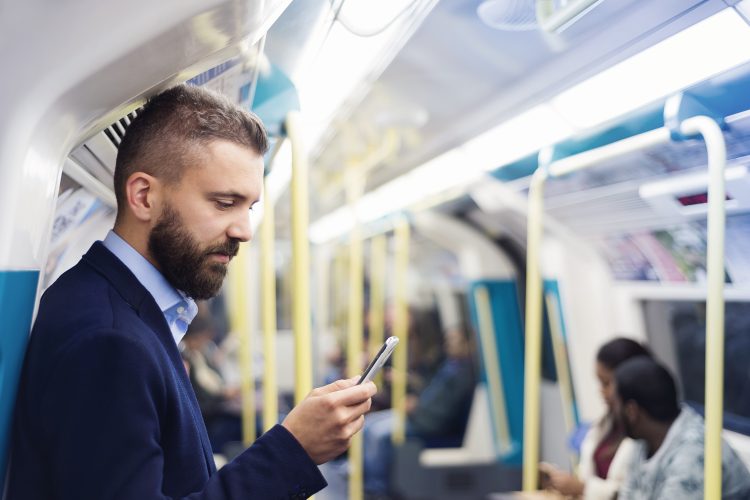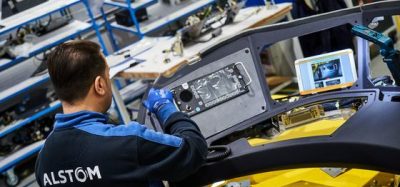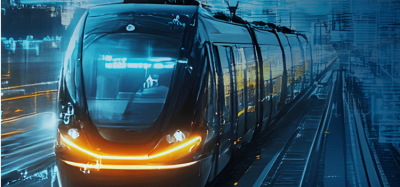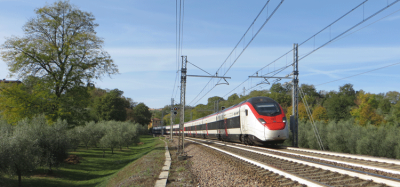‘Headphone dodgers’ to be targeted by Transport for London
Posted: 26 August 2025 | Gabriel Higgins | No comments yet
Transport for London targets ‘headphone dodgers’ with posters and social media campaign, encouraging passengers to use headphones and maintain a stress-free journey for all.


Transport for London campaign encourages customers to use headphones on public transport.
Commuting around London’s rail networks can be a strenuous task for many. One gripe that many commuters complain about is loud music and phone conversations held out loud by other passengers. Dubbed ‘headphone dodgers’, new research by Transport for London (TfL) reveals that 70 per cent of 1,000 customers surveyed find loud music and phone conversations without headphones disruptive.
This is why Transport for London has responded with a new poster campaign, encouraging passengers to use headphones when listening to music or taking calls while travelling. The campaign is part of TfL’s broader #TravelKind initiative, launched in 2017, which promotes considerate behaviour among commuters.
People are sick and tired of headphone dodgers playing loud music on public transport.”
Deputy Mayor for Transport Seb Dance said:
“The vast majority of Londoners use headphones when travelling on public transport in the capital, but the small minority who play music or videos out loud can be a real nuisance to other passengers and directly disturb their journeys. TfL’s new campaign will remind and encourage Londoners to always be considerate of other passengers. However, Londoners spend their journey, whether catching up on their favourite series or listening to music, we want everyone to have a pleasant journey.”
What effect can ‘Headphone dodgers’ have on passengers?
While most Londoners already use headphones, the campaign targets the minority who make calls in speaker mode or play music aloud, which can particularly affect those with conditions that heighten noise sensitivity, such as autism. Emma Strain, TfL’s Customer Director, said:
“We want everyone to have a pleasant and comfortable journey on our services. Better mobile coverage on our network means we’re more connected than ever, and while that means we can stream music and shows and make calls on the go, we must be considerate of others. Most people use headphones, but even just a small number of people not doing so can create an unpleasant or even stressful environment for others. That’s why we’re reminding people to put their headphones on if they don’t already, to give others the stress-free journey they’d expect for themselves.”
The campaign comes as 4G and 5G coverage expands across London’s transport network, making it easier than ever for passengers to stay connected while travelling. Posters are now appearing on the Elizabeth line, the busiest railway in the UK, which handles around 800,000 passenger journeys per day. TfL plans to extend the campaign to other services this autumn, including buses, the Docklands Light Railway, London Overground, London Underground, and London Trams.
As part of the initiative, TfL has partnered with JBL to raise awareness further, offering passengers a chance to win one of five pairs of wireless JBL Live 770 NC headphones via an Instagram competition. To enter, participants must like the post, follow TfL and JBL UK, and tag a friend in the comments.
The campaign also reminds passengers to remain aware of their surroundings, encouraging them to look up from screens in case someone needs a seat. These steps reinforce TfL’s commitment to making journeys more comfortable and inclusive for all.
Significant progress has been made in improving mobile coverage across London’s transport network. Central London Tube lines now have extensive mobile coverage, with ongoing work to extend this to major interchange stations, including Green Park and King’s Cross St Pancras, as well as additional sections of the Northern, Piccadilly, Jubilee, and Victoria lines. Earlier this summer, coverage was introduced between Balham and South Wimbledon on the Northern line, and at Kennington, Oval, Tooting Broadway, and South Wimbledon stations.
High-speed 4G and 5G coverage across the Elizabeth line was completed last year, allowing seamless connectivity for passengers travelling through central London stations such as Whitechapel, Stratford, Canary Wharf, Custom House, and Woolwich. TfL, in partnership with Boldyn Networks, aims to roll out full high-speed coverage across the Underground, DLR, and Elizabeth line networks, with all four mobile network operators, Three UK, EE, Vodafone, and Virgin Media O2, involved in the project.
TfL emphasises that while the majority of commuters already use headphones, even a small number of ‘headphone dodgers’ can cause stress and discomfort to fellow passengers. The new campaign combines education, gentle reminders, and engagement with social media to foster a culture of consideration and respect on London’s public transport.
Last week, responding to reports that Irish Rail has introduced fines for passengers listening to music out loud, Liberal Democrat Transport Spokesperson Paul Kohler MP said:
“People are sick and tired of headphone dodgers playing loud music on public transport, ruining people’s journeys, when they’re just trying to get from A to B in peace.
“The Government needs to answer the silent majority who don’t inflict their noise on others by taking a leaf out of Irish Rail’s book, and backing the Lib Dems’ calls for tough action and fines for the anti-social headphone dodgers.”
Global Railway Review Autumn/ Winter Issue 2025
Welcome to 2025’s Autumn/ Winter issue of Global Railway Review!
The dynamism of our sector has never been more apparent, driven by technological leaps, evolving societal demands, and an urgent global imperative for sustainable solutions.
>>> Read the issue in full now! <<<
Related topics
Digitalisation, Operational Performance, Passenger Experience/Satisfaction, Safety, The Workforce







